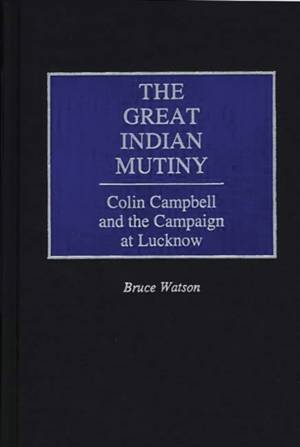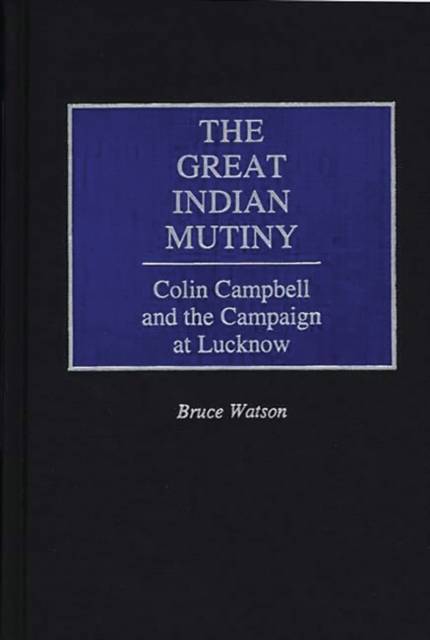
- Retrait gratuit dans votre magasin Club
- 7.000.000 titres dans notre catalogue
- Payer en toute sécurité
- Toujours un magasin près de chez vous
- Retrait gratuit dans votre magasin Club
- 7.000.0000 titres dans notre catalogue
- Payer en toute sécurité
- Toujours un magasin près de chez vous
The Great Indian Mutiny
Colin Campbell and the Campaign at Lucknow
Bruce WatsonDescription
In 1857-1858, rebels in northern India recruited tens of thousands of civilian volunteers in a mutiny that threatened to engulf the entire subcontinent. This study explores a fundamental question never explicitly investigated in histories of the mutiny: How could a vastly outnumbered British army, with dangerously extended lines of supply and reinforcement, defeat so large a force on its home ground? Watson addresses the problem by focusing on the Lucknow campaign, which was pivotal to the success of the British, and abandons the usual narrative approach to the subject in favor of an analysis of the leadership, armies, and other crucial elements in the campaign.
After reviewing the religious, economic, and political unrest that set the stage for the mutiny, Watson provides a brief history of the campaign. In his comparative analysis of the armies and leadership of the combatants, a panorama of contrasts emerges. The British had the advantages of experienced and well-organized leadership, a better trained and organized army, superior weapons, and a cohesive sense of purpose. The rebel forces, on the other hand, consisted of decentralized armies whose effectiveness was compromised by the influx of untrained volunteers and whose leaders were mainly revolutionaries and military amateurs with few common goals. In his analytical comparisons of infantry, cavalry, artillery, and other factors affecting fighting ability, Watson applies John Keegan's categories of battle to develop equations that spell out the character of battle not only for the Lucknow campaign but for the entire conflict. Adding a new dimension to our understanding of the mutiny, this book is relevant to historical study of India, the British Empire, and the British army, and will also appeal to military history buffs.Spécifications
Parties prenantes
- Auteur(s) :
- Editeur:
Contenu
- Nombre de pages :
- 160
- Langue:
- Anglais
Caractéristiques
- EAN:
- 9780275938345
- Date de parution :
- 30-08-91
- Format:
- Livre relié
- Format numérique:
- Genaaid
- Dimensions :
- 156 mm x 234 mm
- Poids :
- 412 g

Les avis
Nous publions uniquement les avis qui respectent les conditions requises. Consultez nos conditions pour les avis.






